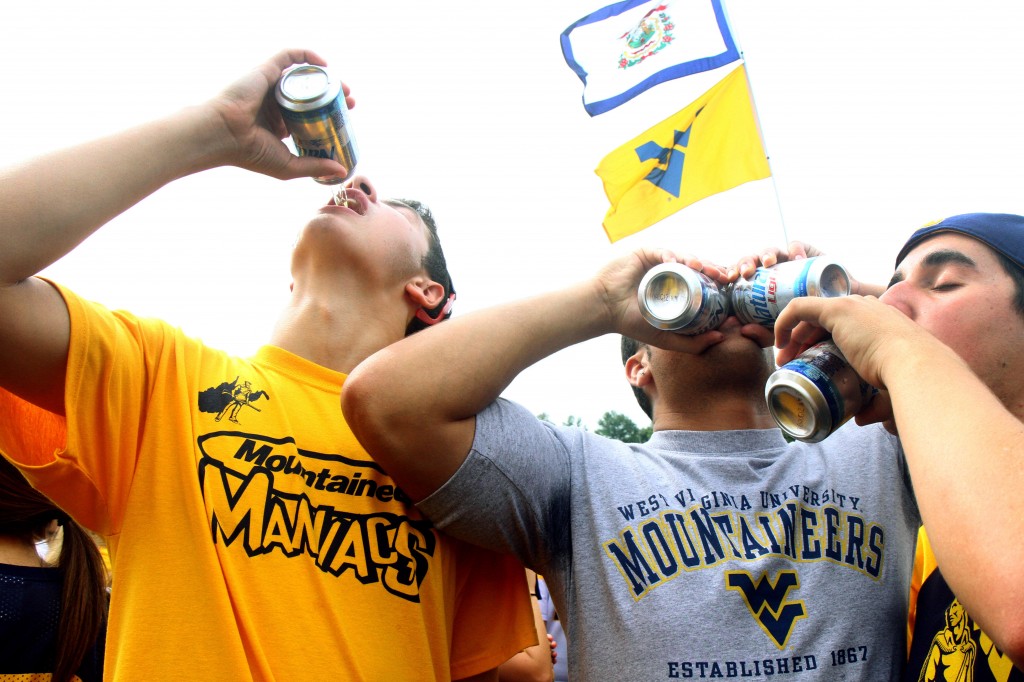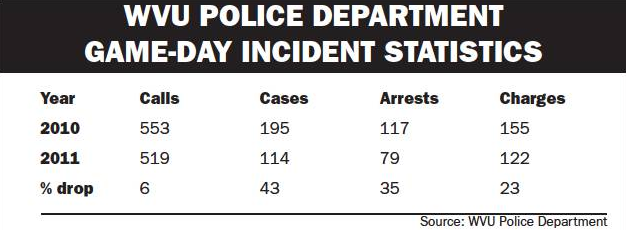Can Selling Beer Cut Down on Public Drunkenness? (Ep. 91)
[omny:https://traffic.omny.fm/d/clips/aaea4e69-af51-495e-afc9-a9760146922b/14a43378-edb2-49be-8511-ab0d000a7030/9876b5ad-d8d4-4980-aaaf-ab0d001b1bdd/audio.mp3]

West Virginia University students drink cans of beer while tailgating outside Milan Puskar Stadium on Sept 1, 2012. (Photo: Chelsi Baker, All-Pro Photography)
Our latest Freakonomics Radio on Marketplace podcast is called “Can Selling Beer Cut Down on Public Drunkenness?”
(You can download/subscribe at iTunes, get the RSS feed, listen via the media player above, or read the transcript here.)
It features Oliver Luck, the athletic director at West Virginia University, whose Top 10-ranked football team opened the 2012 season by beating Marshall 69-34. Luck himself played quarterback at West Virginia from 1978 to 1981 and, after a four-year NFL career, got into sports administration. These days, he is best known as the father of Indianapolis Colts’ rookie quarterback Andrew Luck.
As the A.D. at West Virginia, here’s what Luck saw happening at home football games:
“People drinking far too much at pre-game parties and tailgate parties before games. Sneaking alcohol into games. Leaving at halftime or any point during the game to go back out to the tailgate to drink even more and come back into the game. … They would usually drink hard liquor — ‘get their buzz back on’ and come back into the game for the third quarter. And the police again would know exactly at what point in the third quarter these ‘throw-up calls’ would start to come over the radio.”
Like most colleges, West Virginia didn’t sell alcohol inside the stadium; doing so would seem to collide with a university’s academic mission. But drinking still happened — often aided, as at West Virginia, by a “pass-out policy” that allows a ticketholder to leave the stadium, drink some more, and re-enter.
What to do?
The evidence suggests that college football and mayhem just seem to go together; and in 1996, the University of Colorado at Boulder, which did sell alcohol in the stadium, found a significant decrease in arrests and assaults after banning alcohol.
But Luck proposed a middle solution: start selling beer inside the stadium but kill the pass-out policy. The result? According to Luck, it’s been win-win: about $500,000 in alcohol sales and less alcohol-related trouble. Here are the WVU police numbers from 2011, when the policy changed, and 2010:

Bob Roberts, chief of the West Virginia University Police, told us that he was expecting trouble to rise, not fall, with beer sales in the stadium. So he was pleasantly surprised — and likes the new policy. “You know, you might as well face reality and try to control it. And at least keep the environment as safe as you can. That was always my goal — to try and make the environment safe.”
Luck has since consulted with other schools looking to make a similar change. In July 2012, the University of Minnesota regents approved alcohol sales at the Golden Gophers’ stadium; former state legislator Laura Brod was one of the regents who voted for the beer sales:
“I think we close our eyes a little bit to a tailgate culture that is out there. And what we’ve said is, ‘we’re going to encourage that tailgate culture, but that stops at the door.’ And I think that’s a little bit … odd.”

Comments